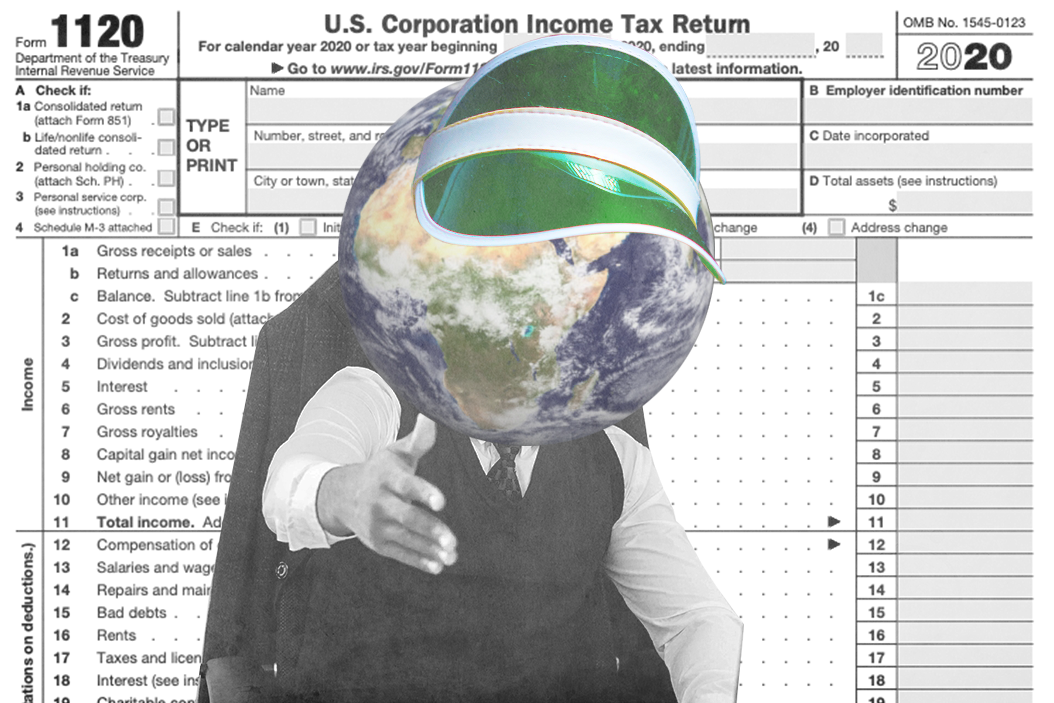April 07, 2021
For many, discussion of taxation policy can often have the same effect as a sleeping pill. But now that the Biden administration has ramped up efforts to impose a global minimum corporate tax, the conversation has suddenly gotten way more interesting as other economic heavyweights vie to come out on top.
What is Biden pushing for? The White House wants to raise America's domestic corporate tax rate after deductions to 28 percent, up from the 21 percent threshold (just below the Organisation for Economic Co-operation and Development average) implemented when the Trump administration slashed taxes for the wealthy and corporations back in 2017.
US Treasury Secretary Janet Yellen has also called for a global corporate tax rate, a minimum that all corporations would have to meet no matter which country they are filing in. In theory, developed economies would still set their own local corporate tax rates, but if companies pay lower rates abroad, their home states could essentially "top-up" their taxes so that they still pay the full rate. Importantly, Biden's proposal would also eliminate loopholes in the US tax code that have long incentivized corporations to move profits to tax havens like Bermuda and the Cayman Islands.
Why now? There are two main (and interconnected) reasons that Yellen is going hard on this now. First, Biden recently unveiled the most ambitious infrastructure plan in decades, worth a total $2 trillion. To cover the costs of this massive project, his administration has to get the money from somewhere.
Moreover, in order to avoid potential setbacks US firms might face globally as a result of the new domestic corporate tax hike, Biden wants other countries to follow suit, ensuring that US-based tech and pharma giants remain competitive (and dominant).
Domestic pushback. Reaction in the US has been predictable. Business groups and Republicans warn that upping the tax rate will cut jobs and economic growth. Even some moderate Democrats say that a domestic tax rate of 28 percent is too high. And with the Democrats holding only a razor-thin majority in the Senate, Biden can't afford to lose a single Democratic vote.
But progressive Democrats argue that abolishing tax loopholes that have allowed multinational companies to flourish while inequality deepens is precisely the right move. Proponents of the plan point to a recent report that found that at least 55 percent of America's biggest companies paid no federal corporate income taxes during the last fiscal year.
The view(s) from abroad. For years, big European nations frustrated with American behemoths like Starbucks, Amazon, and Google that flood their markets yet pay nothing back to their governments, have been pushing for a similar global corporate tax rate. France, backed by the UK and Germany, has been leading the way, though the Biden proposal well outpaces the 12.5 percent standardized tax rate the OECD had proposed.
While Washington dragged its feet in the past, it is now desperate to get on board. But there's a catch: Germany and France say that the plan must include rules on taxing US tech giants that quash competition in their countries, something that the European Union as a bloc has long defended.
Still, some countries vehemently reject the plan outright. Ireland, with one of the lowest corporate tax rates in the OECD, has greatly benefited from operating as a tax haven for multinationals to stash their profits, acting as what one academic described as a "tax-avoiding funnel between nation-states." Similarly, the Netherlands has attracted the likes of Nike, Google, IKEA, and others by allowing these corporations to negotiate rates with Dutch tax authorities. As such, The Hague is likely quite comfortable with the current arrangement (no matter the pushback from Brussels).
Looking ahead. Major economies across the Atlantic have never coordinated their tax systems in such a significant way before. Yellen says these tax code reforms would end a global "race to the bottom" that has undercut American businesses and their workers for decades. It's clear, however, that those opposed, both in the US and abroad, are going to put up one hell of a fight.
More For You
Tune in on Saturday, February 14th at 12pm ET/6pm CET for the live premiere of our Global Stage from the 2026 Munich Security Conference, where our panel of experts takes aim at the latest global security challenges.
Most Popular
- YouTube
In this Quick Take, Ian Bremmer weighs in on the politicization of the Olympics after comments by Team USA freestyle skier Hunter Hess sparked backlash about patriotism and national representation.
British Prime Minister Keir Starmer delivers a speech at Horntye Park Sports Complex in St Leonards, Britain, February 05, 2026.
Peter Nicholls/Pool via REUTERS
In July 2024, Keir Starmer won the United Kingdom’s election in a landslide. It has been downhill ever since, with Starmer’s premiership sullied by economic stagnation, intraparty fighting, and a lack of vision for the country.
© 2025 GZERO Media. All Rights Reserved | A Eurasia Group media company.
